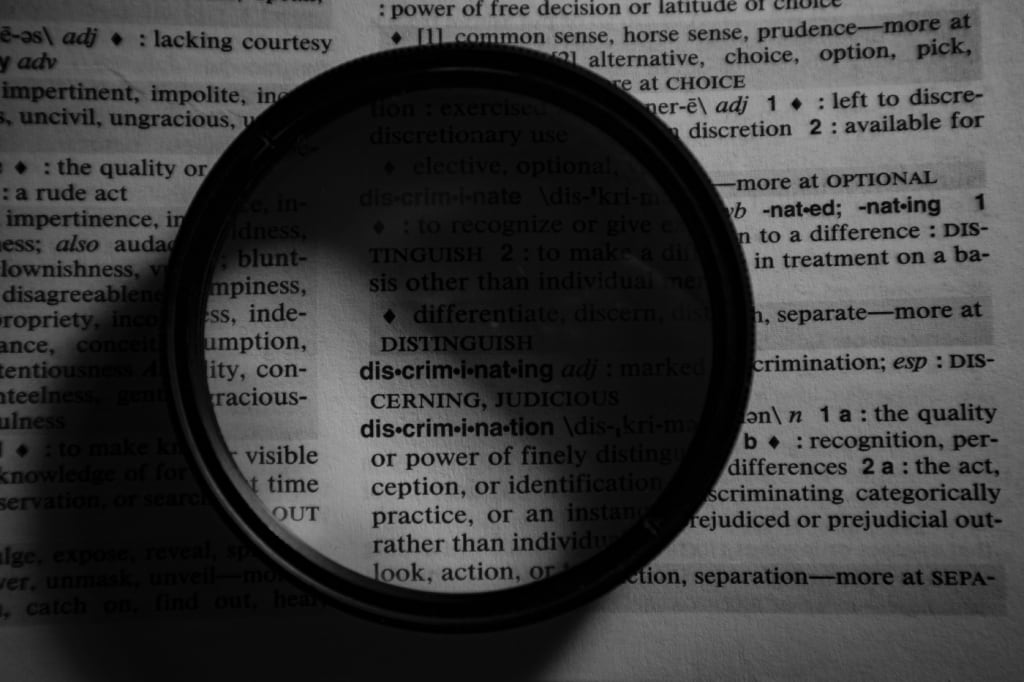No, Your Brain Isn’t Wired for Prejudice and Discrimination
The problem is your personality and character

Have you, at any point in your life, felt self-conscious and uncomfortable about how other people would view and treat you?
I’m talking about people:
- From different socioeconomic backgrounds
- From a different race
- With a different sexual identity
- With a higher education level/family income
Personally, ever since I was a little girl, my parents would tell me that, according to society, what defines a person isn’t their intelligence level, their skills, or their manners.
You might be smart, kind, hardworking, and loyal and still have people looking down on you. Because you’re black. Because you’re gay. Because you didn’t go to college or because you earn just enough money to make ends meet.
I grew up being taught that society judges you by your socioeconomic background, by how much money you make, what kind of work you do, by your education level, and even by the color of your skin and the people you choose to love.
Of course, no one likes it. But it’s something inevitable. Humans’ brains are wired for prejudice.
Or aren’t they?
Actually, Your Brain Regulates Your Behavior to Avoid Bias
According to this study by UCL and Yale researchers, our brain does work differently when we talk to people who are different from us — but not in the way you would imagine.
The study's findings show that our brain does respond differently when we engage with a person of a different socioeconomic background from our own, but not discriminatively. It actually helps us to regulate our behavior to avoid bias expression.
The researchers had thirty-nine pairs of participants with different socioeconomic backgrounds engage in a conversation with each other while wearing headsets that tracked their brain activity.
The measured factors were each person’s education level and family income and the conversations’ topics were plain and simple: from “What did you do last summer?” to “How do you bake a cake?”
They noticed that, among the pairs who had very different socioeconomic backgrounds, there was a higher level of activity in an area of the frontal lobe called the left dorsolateral prefrontal cortex — it’s an area associated with speech production, rule-based language, and cognitive and attentional control.
The findings match with previous research that suggested that our frontal lobe system plays a part in detecting bias and aids us to control our behavior to avoid bias expression.
The increased activity in the left frontal lobe was observed in both participants and was more alike than the brain responses of participants talking to someone of a similar background.
And although the study refers to people with “different socioeconomic backgrounds”, I think it’s safe to assume that our frontal lobe system tries to keep us from any kind of discrimination.
Overall, as Professor Joy Hirsch stated, these findings are greatly optimistic for social interactions and interpersonal relationships:
“I believe our findings offer a hopeful message. We know that humans can have positive social encounters with others who are different. Now we have the neurobiological basis — our brains have apparently developed a frontal lobe system that helps us deal with diversity.”
It’s High Time We Stopped Justifying Prejudice and Discrimination
If I’m being honest, I used to be a bit self-conscious whenever I had to interact with people who were evidently more prosperous and successful than me.
I was always thinking that they would be biased against me because I didn’t come from a rich family, I wasn’t making thousands, or my profession wasn’t highly respected.
However, I was also raised to believe that people by nature can’t help but treat anyone different from them — especially those coming from a different race and a lower social class — in a diminishing way.
It’s not that I was okay with it, or justified their behavior, but I had just accepted it. I now know that no one’s brain is wired for prejudice, discrimination, racism, sexism, or homophobia. It’s high time we stopped using excuses like “it’s human nature to dislike anyone and anything that feels different from us”.
It all comes down to personality and character. I know people who came from racist families and ended up marrying people from a different race, and others, who grew up in homophobic environments and are advocates for LGBTQI+ rights.
What We Can Do to Reduce Prejudice and Stigma
Now, the real question is, how can we improve things, and have fewer stereotypes, and less prejudice, or stigma?
I’m not sure if it’s possible to completely eliminate bias and prejudice but I’m positive that if each individual and society as a whole do their part, we can significantly reduce it.
For example, some steps that could be taken are:
- Educating ourselves and our children more, since people who are more educated tend to express fewer stereotypes and prejudice.
- Challenging our worldview by traveling more and getting in touch with different cultures and customs.
- Making people aware of the inconsistencies in their own beliefs.
- Practicing empathy by asking questions and talking to others about what it is like to walk in their shoes.
- Gaining public support and awareness for anti-prejudice social norms.
- Increasing intergroup contact by helping/encouraging people to create closer connections with members of different groups.
- Passing more laws enforcing equality.
- Confronting prejudice when we see it occurring.
Final Thoughts
The main reason I wanted to write this article is because I’m so tired of people justifying prejudice and discrimination, be it my parents, my co-workers, or someone from my close social circle.
No one is wired to be a prejudiced, racist, sexist, or homophobic jerk. Yes, the world is full of stereotypes. And yes, we might grow up with people who will teach us the wrong kind of values and push us to develop some morally ambiguous beliefs.
But, at the end of the day, the choice is ours: we can do nothing, follow bad social norms and tolerate bias expression or speak out against discrimination and push for change.
About the Creator
Margaret Pan
Words have power.
I write about relationships, psychology, personal development, and books.
https://linktr.ee/margpan






Comments
There are no comments for this story
Be the first to respond and start the conversation.